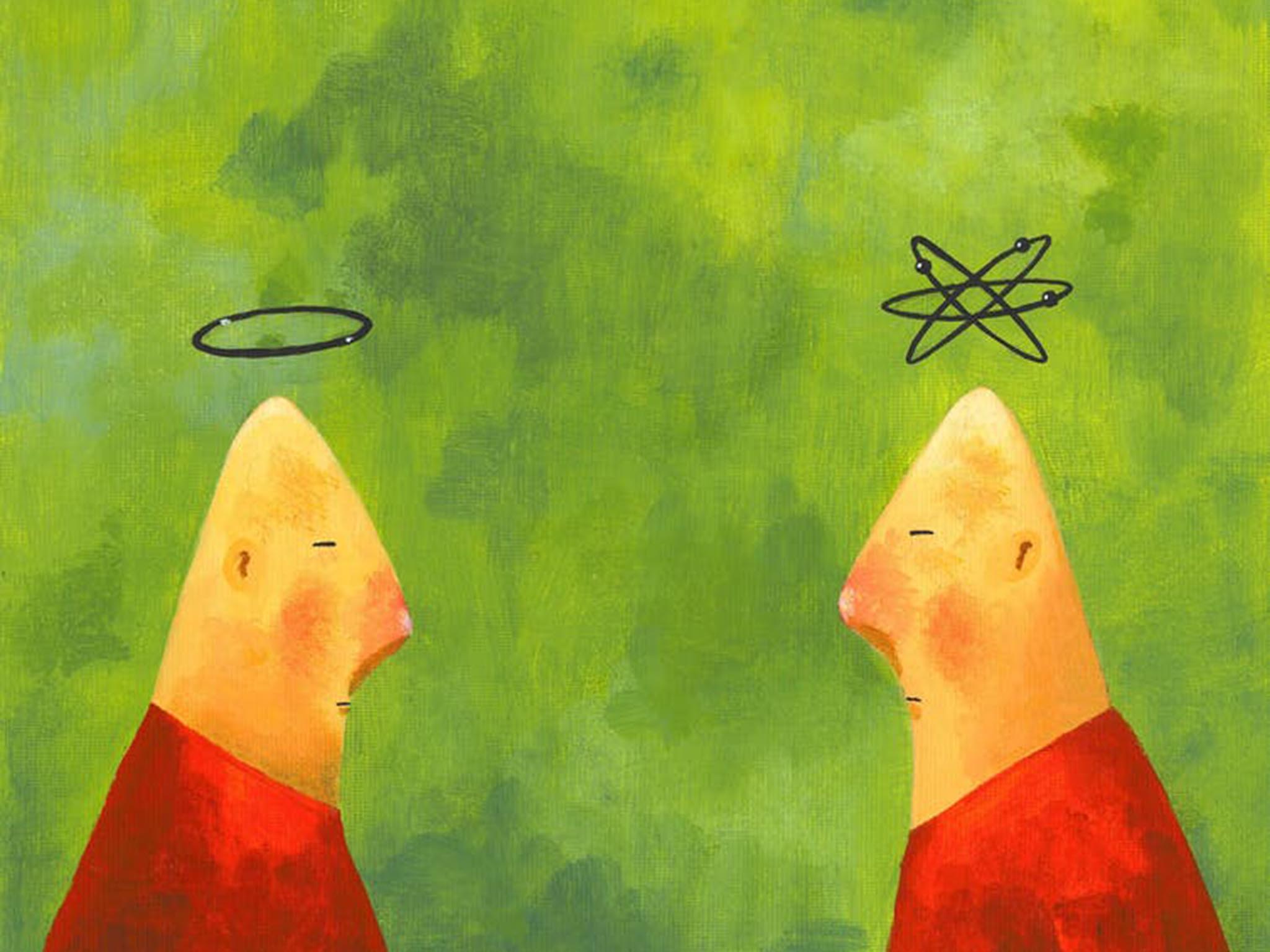When teaching evolution, we need to stop forcing people to choose between their faith and science
It is not for educators to forcefully convert doubters into accepting evolution, but to build an inclusive classroom that respects religious students' beliefs

Your support helps us to tell the story
From reproductive rights to climate change to Big Tech, The Independent is on the ground when the story is developing. Whether it's investigating the financials of Elon Musk's pro-Trump PAC or producing our latest documentary, 'The A Word', which shines a light on the American women fighting for reproductive rights, we know how important it is to parse out the facts from the messaging.
At such a critical moment in US history, we need reporters on the ground. Your donation allows us to keep sending journalists to speak to both sides of the story.
The Independent is trusted by Americans across the entire political spectrum. And unlike many other quality news outlets, we choose not to lock Americans out of our reporting and analysis with paywalls. We believe quality journalism should be available to everyone, paid for by those who can afford it.
Your support makes all the difference.Evolution is near universally regarded by the scientific community as a cornerstone of modern biology. Treating it as anything other than incontrovertible fact can therefore incur the wrath of scientists, who highlight the extensive depth and breadth of robust scientific evidence supporting the theory. But the fact is that a large number of young people are reluctant to accept evolution. In the UK, 10-15 per cent of students feel this way. The percentage is even higher in many countries – in the US, a country with a high proportion of practising Christians – it’s as high as 40 per cent.
As both a professor of science education, with research expertise in evolutionary biology, and a priest in the Church of England, I believe that we need to rethink the way we teach evolution. I’ve spent 30 years teaching evolution to school students, undergraduates and teachers in training. It is clear to me that the way the subject is typically taught in schools can force religious children to choose between their faith and evolution. This is as true for Christian students as it is for Muslims, Orthodox Jews and members of other religions.

Aware of these potential conflicts, many teachers cover the topic incompletely or avoid it entirely. For those who do teach it, evidence suggests that the majority does not view evolution as a “delicate” or “sensitive” matter. This can lead to teaching techniques that directly challenge personal faith, causing upset and anger. In some cases, students may refuse to engage with a lesson. Ridicule from fellow students also often follows, driving a divide between young atheists and religious youth in a world increasingly characterised by religious tensions. I propose that a way forward may be to teach evolution as a sensitive issue.
A teacher who approaches evolution in this way is respectful of their students’ beliefs and attentive to their emotional states, rather than dismissing them as “silly”, “ignorant” or “causing problems”. Such teachers would employ teaching approaches that embrace diversity, address classroom bias and hold in conscious awareness the individual experiences of students. These techniques are commonly used when teaching about sensitive issues such as sex, pornography, ethnicity, religion, death studies and terrorism.
Teachers would still cover the full range of content when teaching evolution. However, when, for example, teaching about how humans and other mammals share a common ancestor, they would not actively seek to establish agreement among all students. When running a group exercise about the age of the Earth, they might use clicker technology that anonymises responses.
Though more work needs to be undertaken to test the effect of shifts in teacher approaches, teaching evolution in this way is likely to help some students to consider evolution as a possibility who would otherwise not do so. People are more open to change when not put on the defensive.
As a science educator, I believe in taking seriously and respectfully the lived experiences of religious students. It is not the role of educators to forcefully convert doubters into accepting evolution, but to build an inclusive classroom that encourages those less comfortable with the concept to willingly engage with it. What is important is that all students can explore and understand the theory in a context that doesn’t force them to choose between science and their religious beliefs.
Evolution does not need to be incompatible with faith. Good science teaching can be invaluable in helping students resolve any perceived conflict, at a crucial age that shapes how they see and interact with the world. I want everyone to be able to experience the same fascination that I did when I learned about how fossils are formed, and how natural selection works. Whether it awakens scientists who would have otherwise turned elsewhere, or simply helps students to understand one another, rethinking how we teach evolution can only be a good thing for society.
Michael Reiss is a professor of science education at UCL Institute of Education. This article was originally published in The Conversation. Read the original article
Join our commenting forum
Join thought-provoking conversations, follow other Independent readers and see their replies
Comments